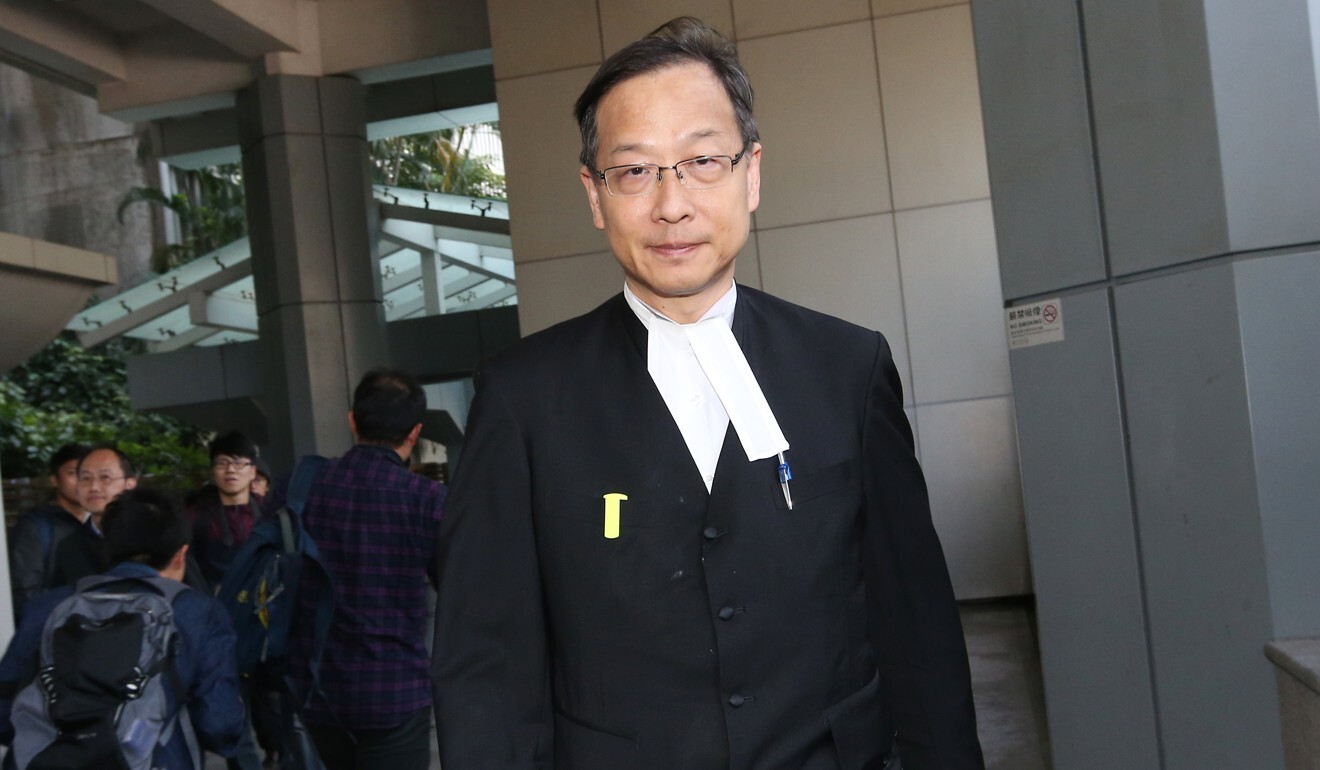
Lawyers for Hong Kong government argue Beijing’s decision endorsing ‘co-location’ arrangement ‘as good as binding’
- Appellants insist the set-up, which allows national laws to be enforced at the high-speed rail terminus in West Kowloon, violates the city’s mini-constitution
- Lawyers for the government, however, maintain any questions of constitutionality were cleared up when China’s top legislative body approved the scheme
A decision by China’s top legislative body is “as good as binding” in Hong Kong, even without a formal interpretation of the Basic Law, lawyers for the local government argued in the Court of Appeal on Tuesday.
The applicants had argued that the joint checkpoint, or so-called co-location arrangement, was inconsistent with 13 articles of the Basic Law, the city’s mini-constitution – in particular a provision that no national laws should be enforced in Hong Kong, apart from those listed in Annex III, which deal with matters such as nationality and diplomatic immunity.
Mainland Chinese officers can operate in Hong Kong rail station, court rules
The Court of First Instance ruled in December 2018 that the Guangzhou-Shenzhen-Hong Kong Express Rail Link (Co-location) Ordinance, which implemented the set-up, was constitutional and that any ambiguity about the issue would have been cleared up by the approval from the National People’s Congress Standing Committee (NPCSC) in December 2017.
The NPCSC had expressly confirmed that the arrangement would be consistent with both China’s constitution and the Basic Law.
But the judgment stopped short of determining the status and legal effect of that NPCSC decision under Hong Kong laws, as Mr Justice Anderson Chow Ka-ming found it would not be appropriate for him to answer, in light of the possible far-reaching implications.
At the Court of Appeal on Tuesday, Hectar Pun Hei SC, for ousted opposition lawmakers “Long Hair” Leung Kwok-hung and Sixtus Baggio Leung Chung-hang, argued that Chow adopted the wrong approach and took irrelevant matters into consideration.
“The restriction on the application of mainland laws was essential to the implementation of ‘one country, two systems’,” Pun said, referring to the framework under which Beijing governs the city.
Six things to know about Hong Kong’s controversial ‘co-location’ joint checkpoint scheme
Martin Lee Chu-ming SC, for social worker Hendrick Lui Chi-hang, said the ordinance was “clearly in violation of the Basic Law” – in particular, Article 19, which provided that the city “shall be vested with independent judicial power” – and that the NPCSC decision, being irrelevant and non-binding, “should not be given any weight at all”.
“It is not the business of the Standing Committee to decide whether the ordinance is consistent with the Basic Law – only a court can do it,” he said. “Otherwise, the Standing Committee can pre-empt the case.
“How can the Hong Kong court surrender its exclusive jurisdiction?” Lee continued.
Yu, however, countered that Lee had confused the concept of adjudication with interpretation, and mistakenly characterised the decision as either being binding or having no effect.
The government counsel argued there was no question of usurping the function of local courts, as the NPCSC decision was “in substance an interpretation” that would be binding on Hong Kong.

“Of course there is a distinction” between a decision and an interpretation, he continued. “But that distinction may be more of form than substance.”
Under articles 158 and 159 of Hong Kong’s Basic Law, the NPCSC can interpret clauses in the city’s mini-constitution and make amendments. It has issued five such interpretations since Hong Kong’s handover to China in July 1997.
“The NPCSC clearly has the power, and, in fact, one may say, the duty to make the decision,” he continued. “You can’t ignore such an important decision from the NPCSC.”
“Are you saying it’s as good as binding?” Mr Justice Johnson Lam Man-hon, vice-president of the Court of Appeal, asked.
“Yes,” Yu replied. “The final arbiter of the Basic Law has already spoken.”
Mr Justice Jeremy Poon Shiu-chor, the chief judge of the High Court, along with Lam and Mr Justice Aarif Barma, will continue hearing the appeal on Wednesday.

